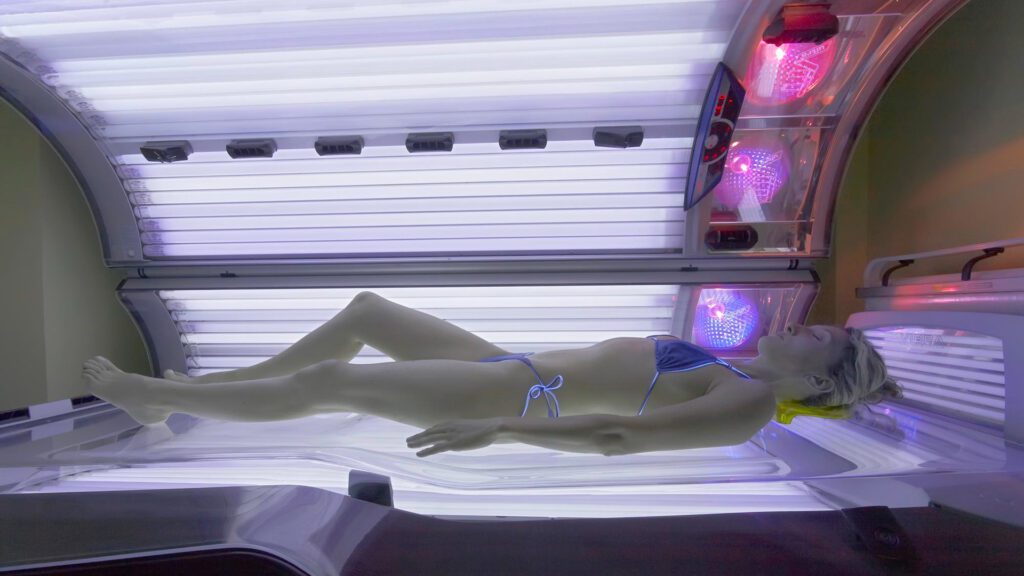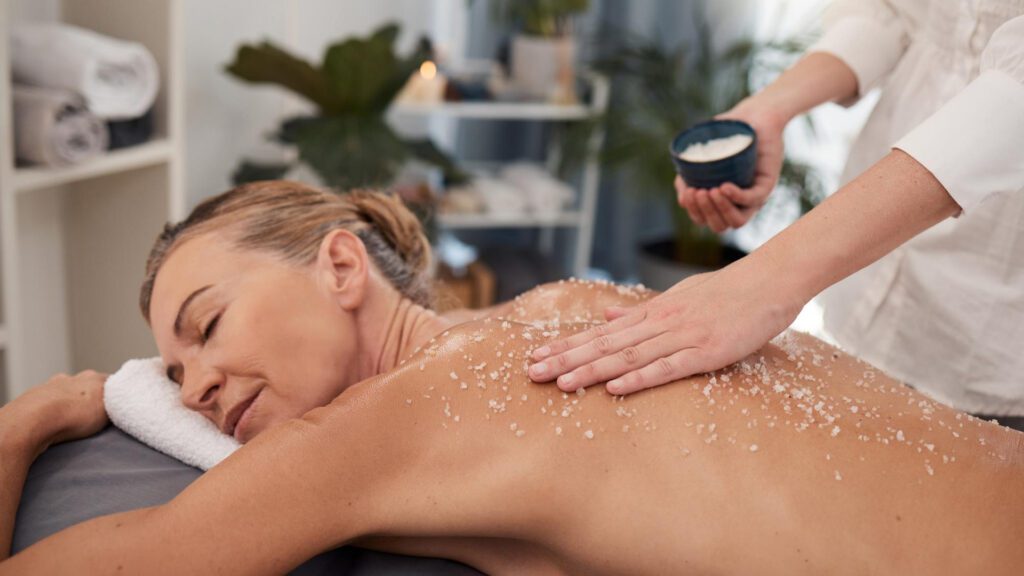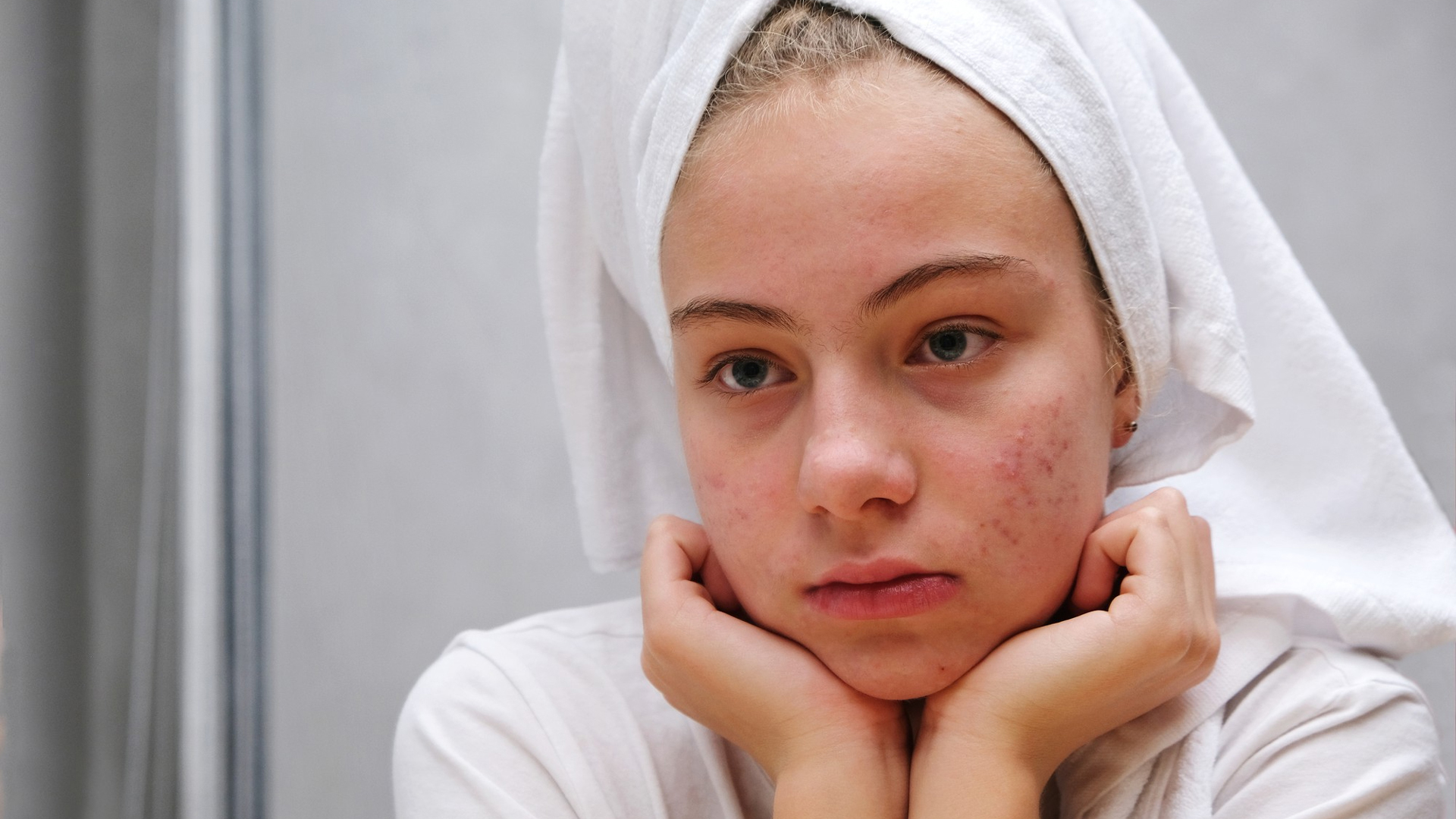You might have seen online influencers and beauty gurus talking about this miraculous method of curing acne called “Tanning”.
However, like most of the information you find online, everything is not true, it’s critical to separate fact from fiction. After doing extensive research here’s what I’ve found!
Does Tanning Help Acne?
Exposure to UV rays have shown to reduce inflammation in the skin and temporarily dry out breakouts, including cystic acne, which reduces the overall appearance of acne.
On the contrary, dry skin or sunburn can lead to a larger amount of dead skin cells on the surface of the skin, which is one of the primary causes for increased pimples.
While tanning may temporarily improve the appearance of acne it is not a permanent solution for acne or other skin conditions like psoriasis.
How Did People Get This Idea?
While I couldn’t find the exact reason where this idea came from, the most likely reason is misconception. People think that visiting a tanning salon helps acne because they believe that the sun gives the same effect as blue-light acne treatment which isn’t true.
Blue-light therapy, which is FDA approved and often recommended by dermatologists, has been shown to reduce the appearance of acne
It is important to remember that this treatment is not the same thing as broad spectrum sun exposure that comes from the sun.
The Harmful Impact of Sunbeds on Acne

While some may believe that exposure to UV light can improve the appearance of their skin, the reality is far more complex and concerning. Here are some harmful affects of sunbeds on acne:
Increased Inflammation and Redness
Sunbeds emit ultraviolet (UV) radiation, which can exacerbate existing pimple breakouts and lead to more pronounced redness and irritation.
The heat produced by sunbeds can also trigger an inflammatory response in the skin cells, making acne-prone areas even more problematic.
Risk of Scarring
Spending Excessive time in the sun bed can make the skin more sensitive and vulnerable to damage. For individuals with acne, this poses a risk of scarring.
The combination of UV exposure and existing acne can lead to post-inflammatory hyper pigmentation, where dark spots remain after blemishes have healed.
Disruption of Skin’s Natural Barrier
Although using sunbeds can initially dry out the skin and reduce pimple production, this excessive drying may stimulate the skin to actually produce more oil to compensate.
As the sebaceous glands in the skin develop more oil, pores are more likely to become clogged, leading to breakouts later down the line.
Potential for Hormonal Fluctuations
Sun damage can impact hormone levels in the body, which may be particularly relevant for individuals whose acne is hormonally driven.
Can Tanning Beds Help Acne Scars?
According to research by the American Academy of Dermatology, tanning beds do not get rid of acne or dry skin. Acne scars are the result of inflammation caused by acne lesions. When the skin heals, it can leave behind various types of scars including dark spots.
Tanning beds expose the skin to ultraviolet rays, which can lead to darkening of the skin tone. But this does not mask the appearance of the scare as it also makes the acne scars appear darker and more noticeable.
What Really Helps Clear Acne | Acne-Fighting Skincare Routine
To treat acne effectively, it’s essential to establish a consistent skincare routine that includes cleansing, exfoliating, moisturizing, and protecting the skin.
Here how I do my skin care:
Cleansing
I use a gentle, non-comedogenic cleanser to remove dirt, oil, and makeup from my skin.
I always look for cleansers with ingredients like salicylic acid or benzoyl peroxide, which can not only improve acne but also prevent clogged pores.
Exfoliating

I exfoliate 2-3 times a week as regular exfoliation helps remove dead skin cells that can trap oil and lead to breakouts.
Opt for chemical exfoliants containing alpha-hydroxy acids (AHAs) or beta-hydroxy acids (BHAs) rather than harsh physical scrubs.
Moisturizing
Contrary to the misconception that oily skin doesn’t need moisturizer, it’s crucial to keep your skin hydrated.
I always use a lightweight, oil-free moisturizer that doesn’t clog pores or has that heavy feeling .
Sun Protection
Sunscreen is a must for all skin types, especially for those undergoing acne treatments that can make the skin more sensitive to sunlight.
Look for non-comedogenic, broad-spectrum sunscreen with at least SPF 30.
Long-Term Skin Damage of Excessive Tanning
Beyond acne, sunbed use is associated with long-term skin damage, like increased risk of skin cancer including melanoma.
The cumulative effects of UVA and UVB can lead to the breakdown of collagen and elastin in the skin, resulting in sagging, fine lines and wrinkles.
So, Does Tanning Help Acne?
In the end, while tanning might seem like it helps because it makes acne less visible, it’s not a real treatment for acne.
For those struggling with acne, I suggest consulting a dermatologist for effective treatment options is a much better approach to achieving clear and healthy skin.

